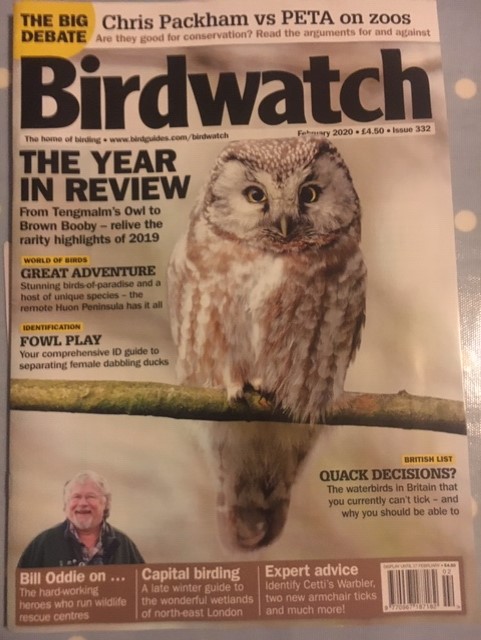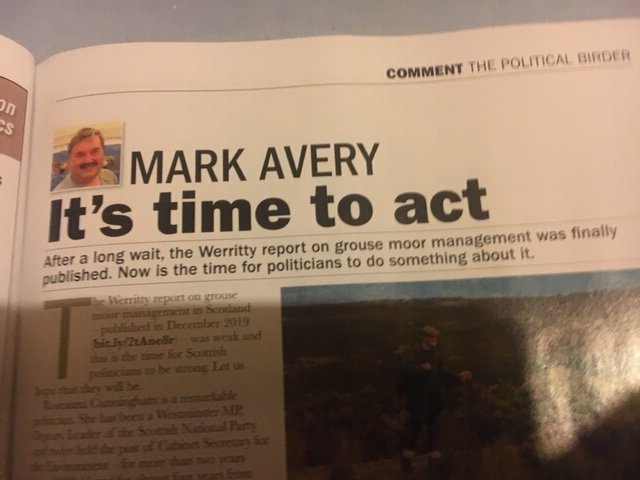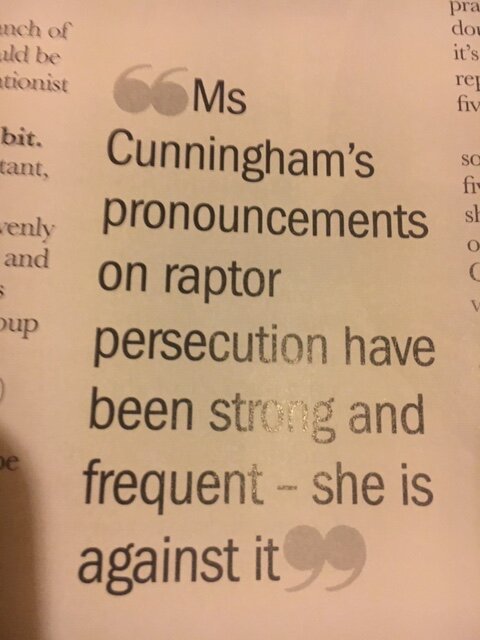
There is even more in the latest issue of Birdwatch than I let on earlier. There’s an excellent article by Dominic Mitchell on revisiting a former local patch of his which is strong evidence for my contention (oft broken, I admit) that one should never go back to a place where one loved the wildlife – because there will probably be less of it around now.
Bill Oddie’s column was a good read, as always, and then I turned to the letters page and found someone slagging him off and someone else slagging me off for my column. I’d guess that we won’t get the push for a few more issues but you never know, do you?
My column, and the whole magazine, was criticised for being too political. Have a look at what the column is called, and has been called since 2011;

Yep, the clue is in the name; The Political Birder.
If you don’t think that nature conservation is a political issue then you just haven’t been thinking very hard. Now it has been possible to agree that nature conservation is a political issue without agreeing that it is a party political one but those days are surely long gone too. The choices of whether and how to conserve nature are made differently, according to different world views, by different parties.

Anyway, this month’s Political Birder column is a paean of praise for Roseanna Cunningham, the equivalent of the Scottish Environment Secretary, but it is also a nudge for her to grasp the nettle and go for licensing of grouse shooting.
Tackling wildlife crime is a conservation issue (no doubt about that), and it’s a political issue (politicians have decisions to make about funding, priorities , policies and new legislation), so there can’t be much doubt that this area of nature conservation is a political one.
Will Roseanna Cunningham be as bold in her actions as she has often been in her words? We will find out over the next few months, for sure.
[registration_form]
Imagine having an Environment Secretary who is against grouse shooting. Wow!
This is my experience of visiting Dartmoor and Devin in general. It’s a barren wasteland compared to thirty years ago.
My formative teenage birding sites were some non descript fields between Harrogate and Knaresborough that used to have lots of farmland birds especially Yellowhammers and Grey Partridges. Until I moved here to Wales I would visit once a year to a wet patch that always and still hosts Jack Snipe, all the rest is gone the wild flowers half the hedges and most of the birds. Then we should go back Mark to make even us understand why we fight for our wildlife, wild and not so wild places.
Yes – it is easy to overlook gradually occurring change in places we continue to visit regularly but returning to a formerly familiar place after a period of absence, whilst often saddening, can give a very stark appreciation of the extent of environmental change.
If you can bear it to go back. Like Aldo Leopold said about living in a world of wounds.
Most of the places in South Essex I bird watched in the 1980’s have now been built on. But I am lucky in that I lived in Rainham and the Marshes were my local patch. The land was an MOD range and I stalked the firing drop out zone and enjoyed the adventure of a wild place and all the birds; flocks of over 1000 finches, hunting hen harriers, flocks of dozens of curlew sands and little stints in the Autumn and rarities such as buff breasted sandpiper and pectoral sandpipers. The area fell into decline once the silt lagoon pumping stopped.
The grazing marshes were mostly dry so a friend and I conducted some ‘guerrilla gardening’ and built earth dams to hold back the water and pools and rills appeared. Some birds increased but the land was threatened with development. A local campaign helped save the site and the RSPB came and bought the land and it has gone from strength to strength under superb management. Here, within the M25 there are 80 odd pairs each of nesting lapwings and redshanks, breeding marsh harriers and bearded reedlings, wonderful. Many of the Essex marshes have been re-vitalised by the RSPB; Wallasea, Old Hall, Bowers Gifford, Vange etc..
Elsewhere, wider farmland birds have gone and a friend has given up local walks as it is ‘too depressing’. He goes to the coast instead. Now is the time to re-vitalise the farmland as well as the coast.